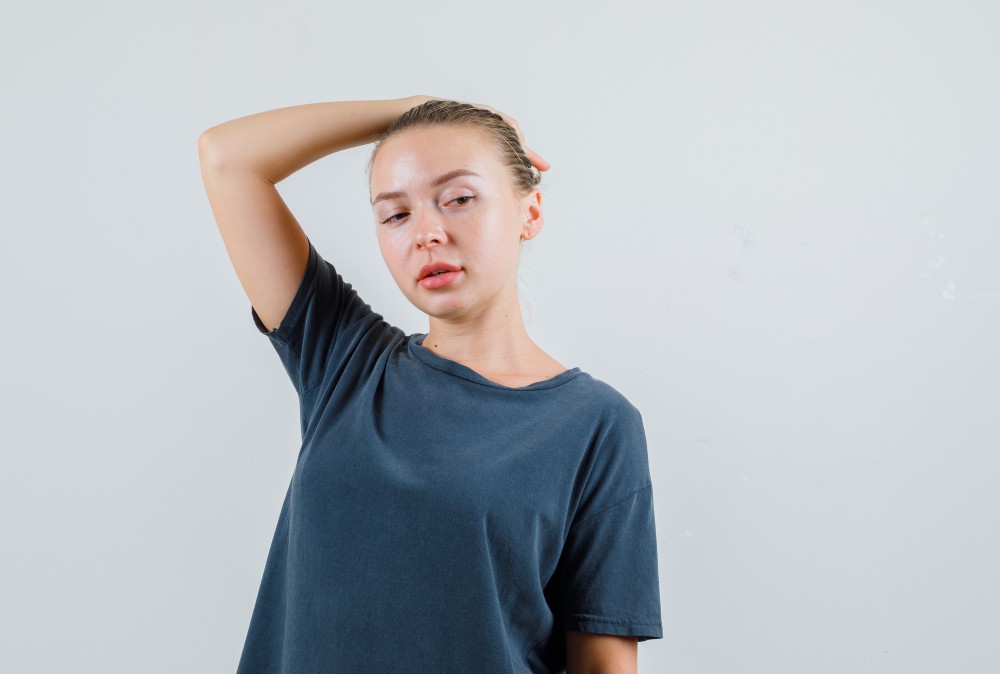Semua wanita akan mengalami menopause, yaitu berakhirnya siklus menstruasi. Menopause ditandai dengan tidak adanya periode menstruasi selama 12 bulan berturut-turut, yang dapat terjadi di usia 40-50an.
Menopause adalah proses biologis alami yang disertai dengan beberapa gejala seperti keringat di malam hari, kesulitan tidur, perubahan suasana hati, kenaikan berat badan, melambatnya metabolisme tubuh, menipisnya rambut, kekeringan pada vagina, dan juga hot flash. Gejala inilah yang kerap menimbulkan kesulitan tersendiri.
Tips Menghadapi Gejala Menopause
Gejala menopause bisa menimbulkan kesulitan tersendiri, khususnya terkait dengan perubahan suasana hati. Berikut adalah beberapa cara positif untuk menghadapi gejala menopause sehingga Anda tetap bisa menjalani kegiatan sehari-hari seperti biasa.
Mengatasi hot flash
Hot flash adalah perasaan hangat yang tiba-tiba muncul di tubuh bagian atas seperti wajah, leher dan dada. Gejala ini menyebabkan kulit memerah dan menimbulkan keringat.
Saat tubuh kehilangan terlalu banyak panas tubuh, maka Anda mungkin merasakan kedinginan setelahnya. Gejala ini dapat memengaruhi kualitas tidur dan menyebabkan Anda sulit tidur nyenyak.
Untuk mengatasi hot flash, sebaiknya inilah yang dilakukan:
- Mengganti pakaian dengan yang lebih tipis dan nyaman
- Mengatur suhu ruangan agar tetap sejuk
- Menghindari minuman panas, pedas, mengandung kafein, beralkohol
- Tidak merokok
- Menurunkan berat badan
Baca Juga: Tanda-Tanda Awal Menopause yang Mungkin Tak Disadari | AI Care (ai-care.id)
Mengatasi kesulitan tidur
Hot flash dan berkeringat di malam hari menjadi penyebab wanita menopause sulit untuk tidur. Berdasarkan data dari National Sleep Foundation, terdapat kurang lebih 61% wanita menopause mengalami gangguan tidur.
Untuk mengatasinya, Anda bisa menggunakan pakaian yang nyaman untuk tidur, atur suhu ruangan tempat tidur menjadi sejuk, dan hindari mengonsumsi makanan yang menyebabkan keringat seperti makanan pedas saat menjelang tidur.
Mengatasi sakit kepala
Perubahan hormon selama menopause dapat memicu sakit kepala seperti migrain. Sakit kepala seperti ini mungkin akan mereda dengan sendirinya setelah menopause berhasil dilewati.
Namun, beberapa orang mungkin mengalami sakit kepala yang parah sehingga perlu mengunjungi dokter dan mendapatkan terapi hormon untuk membantu meredakan sakit kepalanya.
Mengatasi rambut yang menipis
Fluktuasi hormon memengaruhi penipisan rambut karena hormon estrogen dan progesteron memegang peran penting dalam pertumbuhan rambut, kelebatan dan ketebalan rambut. Ketika kedua jenis hormon tersebut terus menurun, maka rambut tidak akan tumbuh secepat sebelum menopause.
Untuk mengurangi gejala penipisan rambut, Anda perlu memperhatikan asupan makanan, mengelola stres dengan baik, menggunakan produk perawatan rambut, dan menghindari terlalu sering menggunakan peralatan penataan rambut.
Bila penipisannya lebih parah, Anda mungkin perlu mendapatkan resep obat dari dokter, menjalani microneedling, terapi laser atau bahkan transplantasi rambut.
Baca Juga: Mengenal Tiga Tahapan Menopause pada Perempuan | AI Care (ai-care.id)
Mengelola perubahan suasana hati
Penurunan hormon di dalam tubuh juga memengaruhi suasana hati yang dapat menyebabkan Anda kelelahan, stres, mudah lupa, mudah merasa cemas, kesulitan berkonsentrasi dan uring-uringan. Pada beberapa orang, perubahan suasana hati yang parah dapat mendorong orang mengalami depresi.
Untuk kondisi yang parah, Anda perlu menjalani terapi hormon yang tak hanya mengatasi perubahan suasana hati namun juga membantu mengatasi keringat di malam hari serta hot flash. Perubahan pola hidup sehat seperti olahraga, pola makan yang sehat dan tidur yang berkualitas juga membantu Anda mengelola suasana hati menjadi lebih baik.
Menopause adalah tentang perubahan emosional dan fisik yang bisa sangat melelahkan. Setiap wanita bisa mengalami gejala menopause berbeda-beda sehingga selain menjalani pola hidup sehat, Anda juga perlu berkonsultasi dengan dokter untuk menemukan opsi pengobatan yang tepat.
Anda juga dapat berkonsultasi mengenai gejala menopause dengan mengunduh aplikasi Ai Care di Playstore atau Appstore.
Mau tahu tips dan trik kesehatan, pertolongan pertama, dan home remedies lainnya? Cek di sini, ya!
- dr Nadia Opmalina
Mayo Clinic (2022). Menopause. Available from: https://www.mayoclinic.org/diseases-conditions/menopause/symptoms-causes/syc-20353397
Mayo Clinic (2022). Hot flashes. Available from: https://www.mayoclinic.org/diseases-conditions/hot-flashes/diagnosis-treatment/drc-20352795
WebMD (2022). Sleep and Menopause. Available from: https://www.webmd.com/menopause/guide/sleep-disorders-sleep-menopause
Juliann Schaeffer (2019). Are Headaches a Symptom of Menopause?. Available from: https://www.healthline.com/health/menopause-headaches
Angelica Bottaro (2022). Can Hair Loss Be a Symptom of Menopause?. Available from: https://www.verywellhealth.com/menopause-hair-loss-5218350
Danielle Dresden (2022). What causes mood swings during menopause?. Available from: https://www.medicalnewstoday.com/articles/317566












